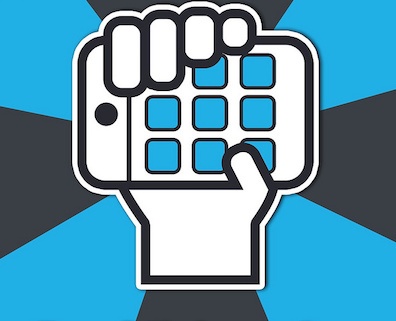How To Tap Into The African Learning Management System Market
The need that exists in Sub-Saharan Africa to innovate in education requires that Learning Management Systems (LMSs) and content authoring companies come up with solutions that are not only low cost, but highly efficient and market relevant. Africa is the only region in the world where installed authoring tools generate more revenue than platforms. Africa has the highest growth rate for installed authoring tools in the world at 22.7%. This is due to the widespread use of open source platforms across the region. With massive potential, Learning Management System providers looking at tapping into the African market need to consider the 4 Ps on how to tap into the African Learning Management System market: Positioning, Price, Partnerships, and Practical training.
- Positioning.
To effectively penetrate the African market, how you position your Learning Management System is key. Africa as a continent presents unique potential for Learning Management System companies targeting corporates and academic institutions. Companies that are able to capture this growing market will reap considerably in the future. Academic institutions across the continent are looking for eLearning solutions that meet African challenges and give sustainable results. Learning Management Systems that position themselves as solutions to the region’s learning challenges will likely have the greatest uptake in the market. At the time that Moodle ventured into the African market it opened doors of opportunity for eLearning advancement by proving that innovating in education does not always require large amounts of resources. Africa is now the most dynamic eLearning market on the planet and has the highest growth rate for self-paced eLearning in the world at 16.3%. Revenues reached $523.0 million in 2015 and will nearly double to $1.1 billion by 2020. Positioning is the key factor that has continued to give Moodle the edge in the African market. Users of Learning Management Systems want to know what the academic return on investment (ROI) will be and how the learning challenges they are facing will be solved with the Learning Management Systems. As you craft solutions take into consideration pivotal issues such as internet availability, hardware availability, and practical teacher training which all inform the success or failure of eLearning initiatives. A market-centered approach is the best approach to apply if one is to successfully penetrate the African market. Proper market research is essential to ensure that the offering meets the needs of those in African countries and in many cases the needs may differ from country to country. With both corporate and academic institutions growing in their application of eLearning solutions there is an open market available for players who are prepared to position themselves as aligned solutions for the African market. - Price.
Of the top 20 countries with the highest eLearning growth rates in the world 8 out of 20 are in Africa. Presently the revenues for self-paced eLearning are concentrated in South Africa, Nigeria, and Morocco. The countries with the highest growth rates in the region are Uganda, Ghana, Rwanda, and Senegal at 45.7%, 44.5%, 42.9%, and 39.9%, respectively. The eLearning market in Africa is still young and price is a key determinant for corporates and academic institutions deciding on which Learning Management System to utilize. For academic institutions open source Learning Management Systems have been the dominant choice and as a result Moodle continues to dominate the African Learning Management System market. There are 313 registered Moodle sites in South Africa including some of South Africa’s top universities, namely Rhodes University, University of the Free State, University of Witwatersrand, and Stellenbosch University. Rhodes University alone runs an instance of Moodle as its institutional Learning Management System is RU connected with more than 10,000 registered users, including more than 550 teachers. In 2014 Stellenbosch University’s electronic learning management system switched from Vista and Blackboard to Moodle. Open source software is (usually) free to download and use. This has a great practical value for schools with tight budgets. A school that uses free and open source software can save thousands of dollars every year. Moodle for example can be customized or modified through modular, interoperable plugins, and commercial and non-commercial projects can be shared without any licensing fees. New entrants into the market would have to price their product right if they are to capture the market which had been hugely reliant on open source Learning Management Systems. - Partnerships.
Africa is an open market for Learning Management Systems that address the challenges that have hindered sustainable and commercially viable eLearning and education focused eCommerce initiatives in African markets. There is great potential for Public Private Partnership’s [PPP] working directly with Ministries of Education and Ministries of ICT to close infrastructure gaps, offering open educational resources, digitized workbooks, an interactive Learning Management System and a hardware package. Device makers and telecoms are quite active in the Africa eLearning market and offer significant partnering opportunities for international suppliers. International suppliers would make massive headway by identifying local partners, distributors, and resellers of their Learning Management Systems who are well accustomed with the market and its needs. Targeting specific buyers in particular countries with particular product types is the key to generating revenues in Africa. - Practical Training.
Teachers are key to the successful reception and usage of any Learning Management System in academic institutions. If you equip educators in the functionality and capability of the Learning Management System, they will better equip learners on their academic journey. A critical element for successfully tapping into the African market specifically targeting academic institutions is in offering training for teachers on the Learning Management System, thereby giving them adequate knowledge to utilize it effectively. For example, by hosting interactive seminars, it is possible to introduce teachers to the Learning Management System and help them to familiarize themselves with its operation. When implementing eLearning in new markets it is important to have training strategies that will help them to maximize Learning Management System usage, which in turn, will enable to realize the expected Learning Management System benefits.
Improving the quality of teaching and learning, widening access to education, and reducing the cost of delivery are among of the motives behind Learning Management System adoption. Nonetheless, these goals cannot be achieved if users are not adequately trained in the use of the Learning Management System.
References:
- eLearning Market Trends & Forecast 2014 - 2016 Report, A report by Docebo, March 2014
- Ambient Insight, The 2015-2020 Worldwide Self-paced eLearning Market
- John Iglar, The Power and Promise of Open Source Software: eLearning Africa, Addis Ababa, May 2015








